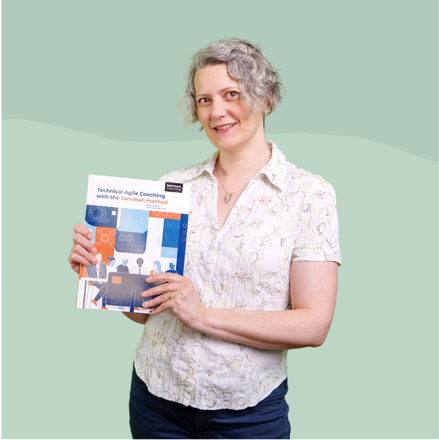In my current assignment, I’m taking the role of “developer-in-test”. I’m working in a large distributed development project, which is building new functionality on a large existing codebase. In practice, I work closely with the developers in the project and build automated tests for subsystems that previously had only manual tests. The developers can use these tests to support their work, and add new tests as they build new features.
My background is basically as a developer, so I have been reading up on testing. I found “Lessons Learned in Software Testing” by Kaner, Pettichord and Bach very helpful, and “Agile Testing” by Lisa Crispin and Janet Gregory helpful and also very thorough. I find it interesting that the authors of the first book started out as developers and now classify themselves as testers, while Lisa and Janet apparently always have called themselves testers, although they clearly write a fair amount of code as part of their work.
Dave Nicolette recently made a blog post “Merging the developer and tester roles” where he argues that Tester is just a specialization of Developer in the agile world, like DBA (DataBaseAdministrator) is a specialization of Developer. He argues that agile teams need to be staffed with generalizing specialists. That means anyone can turn their hand to any task that is currently needed, while still having some tasks they perform with more skill than others.
I like Dave’s viewpoint, it fits my experience. I can only write effective 2nd Quadrant tests, (business facing, support the team), if I understand what the developers need, and I do that best if I have done some development on that part of the system myself. To put it another way, I need to be just as competent at writing code as the other developers in the project I’m working in, but I also need additional skills to do with testing.
I like the term “developer-in-test” to describe a role writing and enabling 2nd Qudrant tests.
Having said all that, I’m not sure I agree with Dave that the Developer and Tester roles should always be merged. In my current assignment I’m also helping a group of testers, usability experts, technical writers and product owners to get going with exploratory testing. This testing falls into Q3 of the agile testing quadrants, and is quite different. You still need testing skills, but developer skills are mostly irrelevant. It’s much more about understanding what the user is trying to achieve with the system, and how they view it.
I think there is a role for non-coding testers in Q3 testing. However, I don’t think you’ll get far with Q3 unless you have the other quadrants well covered with automated tests. So I think the majority of work for a tester in an agile environment is still going to involve test automation. Only the biggest projects will be able to afford to have non-coding testers.







